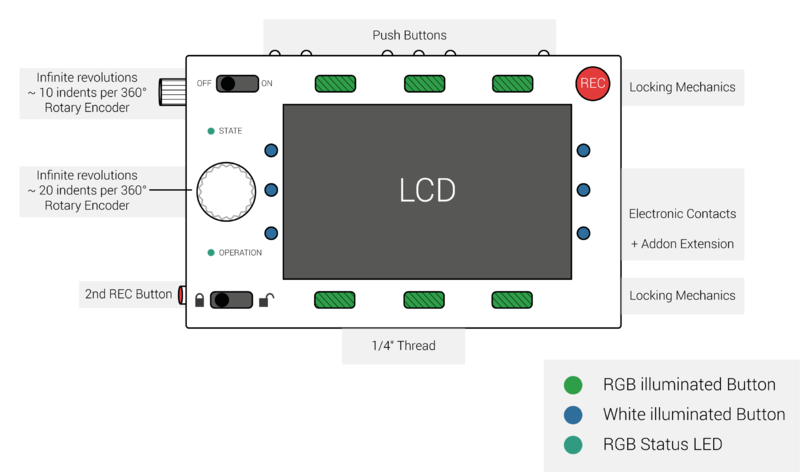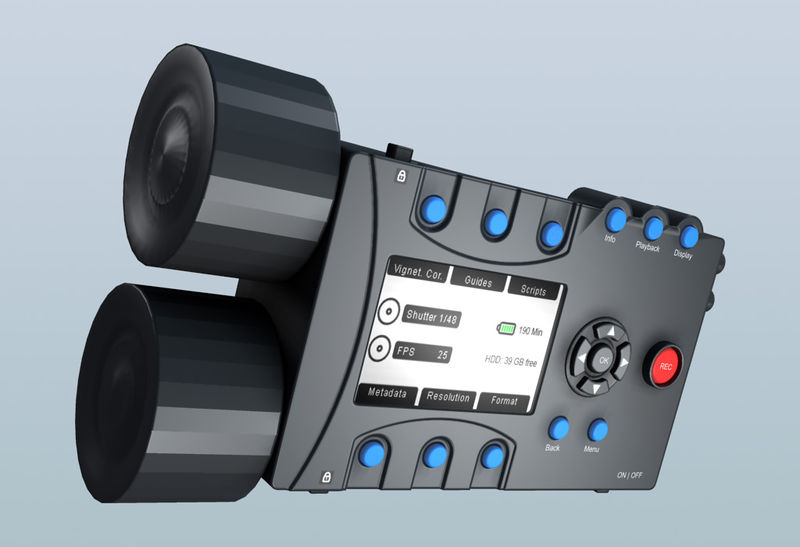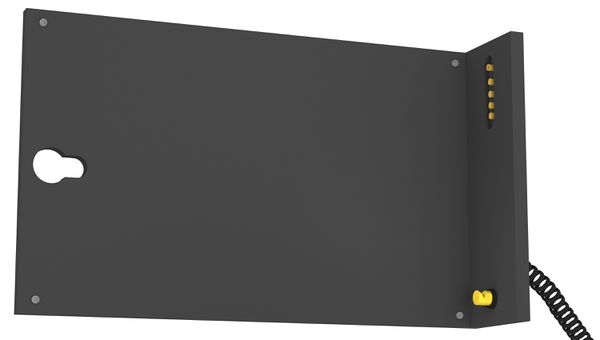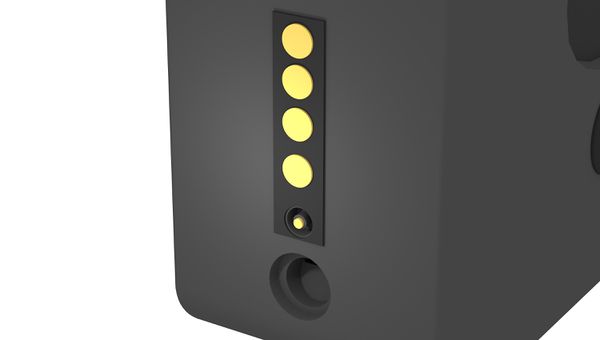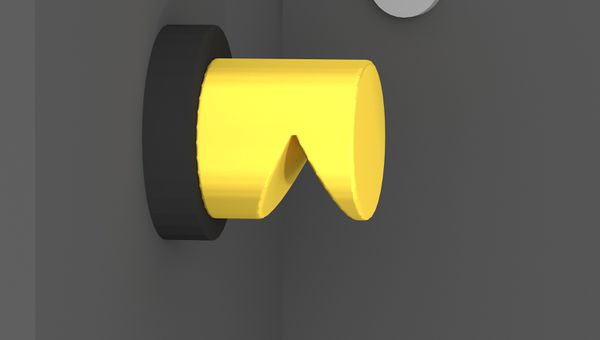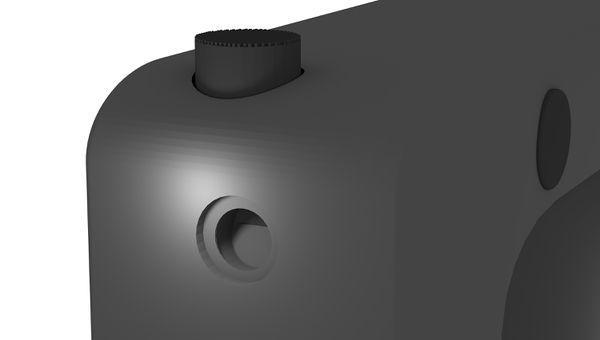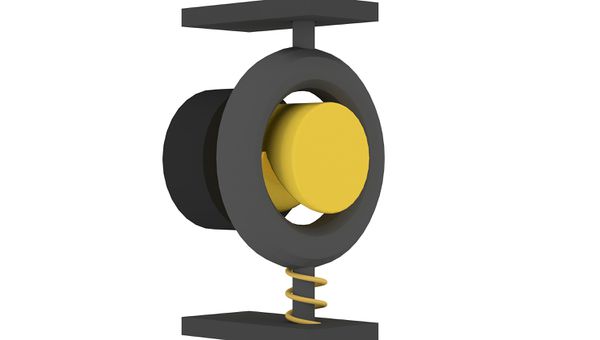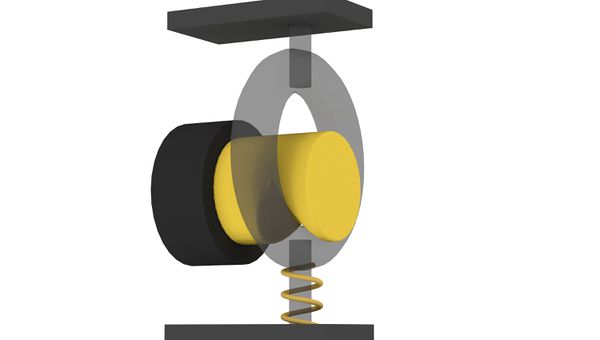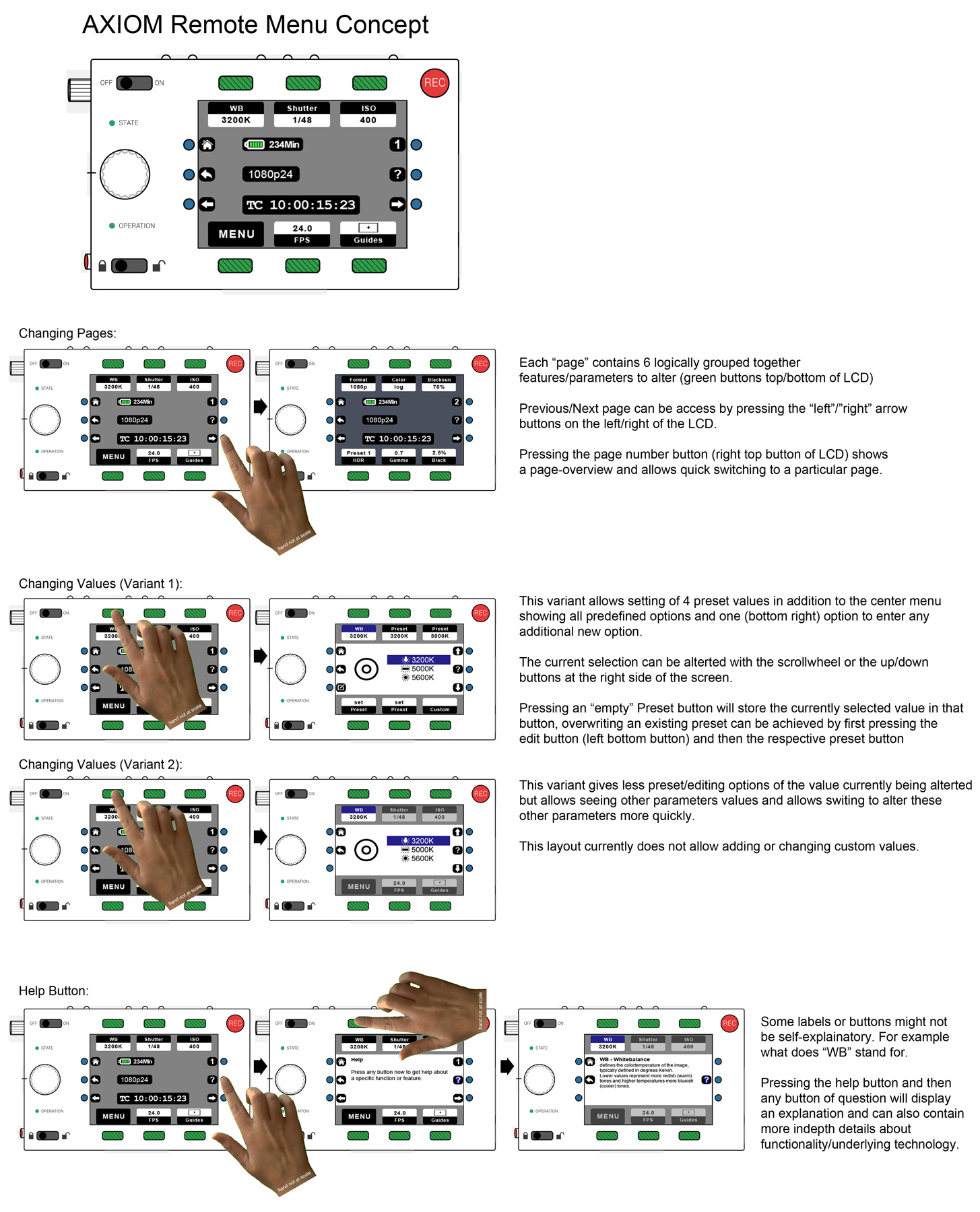AXIOM Remote
1 Project Overview
This device, and when released the associated software, is designed to be a comprehensive remote control unit for the AXIOM range of cameras.
As with all software & hardware that is pre-production the information contained on this page is subject to changes.
AXIOM Remote was funded as a stretch goal in the AXIOM Beta crowd funding campaign and is still in development. It features push-buttons and switches as well as 2 rotary encoders (also with push-button function) that can be used to control a wide range of camera parameters like shutter speed, gain, overlays, FPS, gamma curves etc. To keep everything as flexible as possible the buttons next to the LCD have dynamic functionality as their commands are displayed next to them on the LCD. Switches on the side allow locking of each individual dial wheel or all buttons on the AXIOM Remote.
Force Feedback for the two dials with two small built-in micro-stepper motors would allow feeling the settings (like min, max reached) without looking at the display. This could also allow switching the dials between jog/shuttle mode.
The AXIOM Remote is based on a small LCD screen (for showing status information, camera parameters and navigating through menus, no live video) and a PIC32 micro-controller. The connection between AXIOM Remote and an AXIOM camera will be a flexible (preferably spiral) cable with solid connectors. Expansion slots (with GPIO) will allow easy future addition of new buttons/knobs/wheels/controllers/interfaces.
| AXIOM Remote Feature Wishlist | ||
|---|---|---|
| Essentials | Good to Have | Luxury |
| Lens Mount | Passive E-mount | |
| Hardware Architecture | Xilinx Zynq 7020 based MicroZed | |
| Modules and Shields | Single HDMI Full HD (4:4:4) output at up to 60 FPS | |
| Dual 6G SDI output (in development) | ||
| 3x PMOD debug module | ||
| LED matrix debug module | ||
| Genlock, Trigger, Timecode, LANC shields (in development) | ||
| 4K Displayport/HDMI (in development) | ||
| Connectivity | USB / USB UART / JTAG / Gigabit Ethernet | |
| AXIOM Remote Feature Wishlist | ||||
|---|---|---|---|---|
| Good to Have | | Luxury | |||
| a few Status LEDs | single color LED under most buttons (transparent) | RGB LED under every button (transparent) | ||
| Enclosure Footplate | 45mm | 30mm | 8mm | 27.9g |
| E-mount Lens Tube | NA | 61mm diameter | NA | 28g |
| AXIOM Beta I: Developer Kit (board stack, footplate, lens tube & skeleton enclosure) | 65.1mm | 111.76mm | 74mm | 319g |
| AXIOM Beta II: Production Ready Enclosure | TBD | TBD | TBD | TBD |
2 General Concept
File:AXIOM Remote V3 ButtonPos.pdf
Camera Docking Station:
3 Operation Concepts
4 Electronic Components
In consideration:
http://www.minidevs.com/product/CORE-A20.html hand soldered to our own PCB
iphone 4 replacement display (326 PPI 3.5" 960×640 px) or http://www.ebay.com/itm/OEM-HTC-Droid-DNA-ADR6435-Original-LCD-Screen-Display-Repair-Replacement-Parts-/350711245261 smaller bezel )(documentation through: https://hackaday.io/project/364-mipi-dsi-display-shieldhdmi-adapter ?)
3D accelerometer to measure device orientation (optional)
4x AA battery tray
firmware stored on microSD card
no internal RTC and no button cell -> RTC in Beta instead
ALPS SRBE210200 rotary + push switch
alternative:
https://octopart.com/en12-hn22af18-bi+technologies-7730374
SMT type rotary encoders:
http://www.alps.com/prod/info/E/HTML/Encoder/Incremental/EC05E/EC05E_list.html
http://www.alps.com/prod/info/E/HTML/Encoder/Incremental/EC10E/EC10E_list.html
Beta connectivity through Hirose HR10A-7P-4S (a bit expensive but massive) or alternatively 4 pin 2.5 or 3.5mm audio cables: 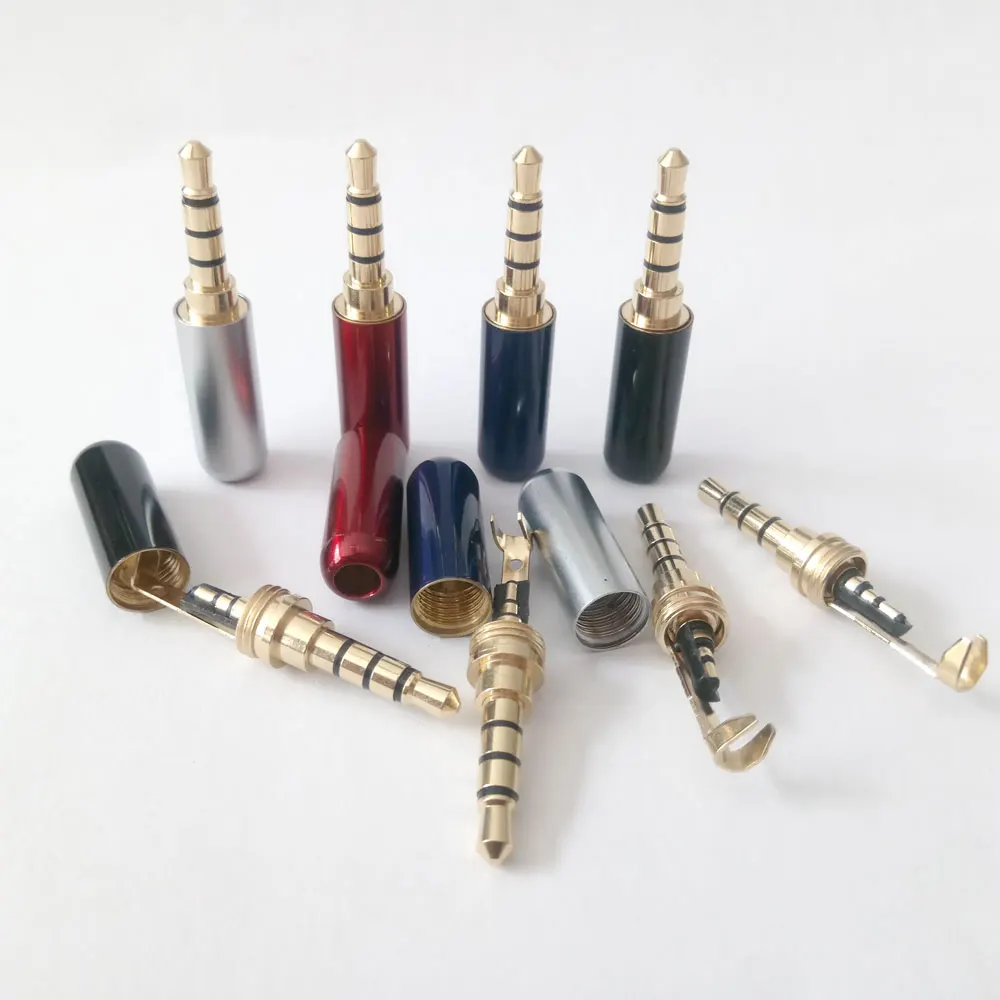 plus metal receptor on Beta and Remote: https://www.amazon.de/sourcingmap-Kopfh%C3%B6rer-Interieur-Montage-Steckdose/dp/B014XJ1SN6
plus metal receptor on Beta and Remote: https://www.amazon.de/sourcingmap-Kopfh%C3%B6rer-Interieur-Montage-Steckdose/dp/B014XJ1SN6
RS232C as Beta <-> Remote protocol4
Toogle Switches APEM ZL series
5 TODO, next steps
- pick buttons, rotary encoders, etc components, collect datasheets and extract documentation about each components footprint and positions here
